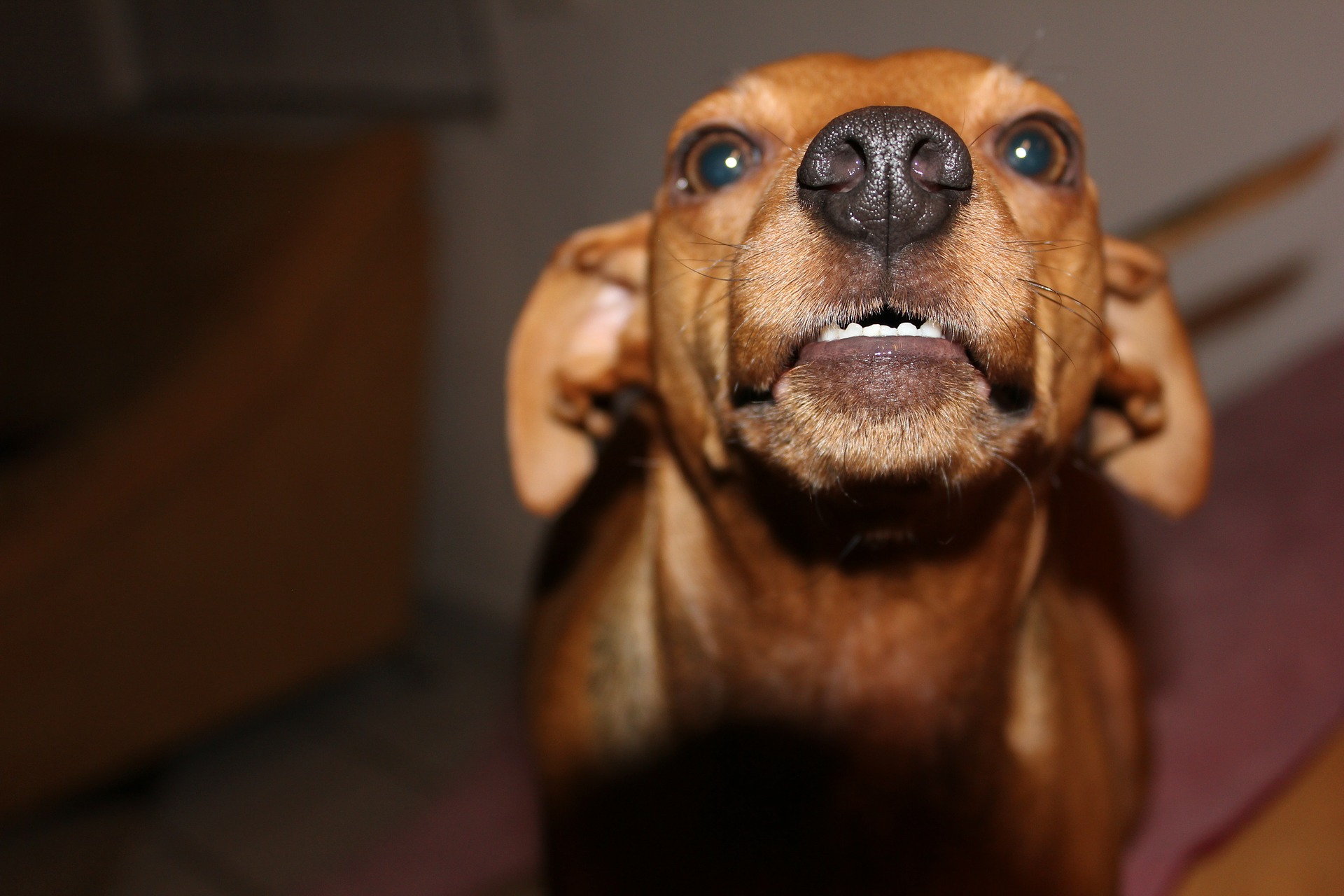Love for your Reactive Dog
There’s a saying that’s been making the internet rounds lately:
“Your reactive dog isn’t giving you a hard time, he is having a hard time.”
It is an apt summary of what’s going on when our dogs freak out at the sight of dogs, men in hats, skateboards, or any one of a number of other “triggers”.
It’s embarrassing when our dogs bark and lunge at the things that worry them, and difficult to control a large dog who’s pulling on lead. It seems like they’re being “disobedient”, and even the best treats in the world don’t seem to make a dent in the behavior.
When caught in the throes of a reactive episode your dog’s heart races and his respiration is high. Stress hormones rush into his system, and he responds reactively rather than thoughtfully. He may be anxious or deeply fearful.
He is not having a good time.
Even dogs whose behavior is generally easy can have their moments of over-enthusiasm or over-arousal.
We can help our dogs to succeed when faced with things that initiate this behavior by considering some simple factors:
Distance: How far are we from our dog’s triggers? Some stimuli can be no problem from across the street, while others may be too close at 3 blocks (or more) away.
Duration: How long are we asking our dog to keep her wits about her while there are challenges and distractions in the environment? She might be fine for a minute or two, but beyond that she might begin to lose it.
Difficulty: A skateboarder whizzing by may be more challenging for your dog than a baby quietly being pushed in a stroller. Learn your dogs’ triggers, and give them the support they need.
We can help our dogs prepare for challenges by building the needed skills when they are not faced with their triggers. Training and practicing such techniques as the “Back-up Recall”, and “Find-It” game can all go a long way to building patterns of behavior that will hold you and your dog in good stead.
Back-Up Recall:
To train the Back-up Recall, walk with an easy relaxed leash, just a few feet away from your dog. Call his name in a happy, “party” voice, and run backwards. Few dogs can resist the allure of a human being backing up! Add some high-value treats such as hotdog, cheese, or chicken held at your dog’s nose level, and this will quickly become a favorite game. I like to use an alternative to my dog’s name when we play this game, saying “pup-pup-pup” in a happy voice.
Find-It:
The Find-It game is even simpler to teach, and can become a powerful tool to help your dog in a variety of situations. As with the Back-up Recall, this game is all about fun, and a high rate of reinforcement. Load 10 tiny bits of cheese, chicken, or another high-value treat in your hand, call out “Find-It” and toss a treat on the ground in easy view of your dog. Start by tossing the treat just an inch or two away from your dog, building to greater distance as she becomes fluent. Do this in a rapidfire succession, or toss several treats on the ground one after another, to build your dog’s excitement for the game. Gradually increase environmental distractions when you play, so that your dog becomes able to disengage from the environment and engage with this game. You can begin to add some directionality to your treat tosses, which will help you guide your dog’s movements when necessary.
Remember, if you are too close to your dog’s triggers, he won’t be able to play “Find-It” or other games. Use the Back-up Recall to add distance, and move with your dog out of the reactivity zone.
These are just a couple of techniques to help our reactive dogs. There are many other tools at our disposal, such as “counterconditioning” to change their emotional associations, and several versions of “click for looking” in which our dogs learn that calmly acknowledging the presence of a trigger is a behavior that reaps rewards.
Joyful Dog and Hearts in Harmony are continuing our collaborative classes for reactive dogs this month, with afternoon classes starting on February 19, and evening classes beginning February 20.
ADDITIONAL RESOURCES FOR YOU AND YOUR REACTIVE DOG
Classes
Reactive Dog Class Level 1
Taught by Joyful Dog and Hearts in Harmony
Sunday February 19 – April 9, 2:00 – 3:30 p.m., or Monday February 20 – April 10, 6:30 – 8:00 p.m., Maximum 6 dogs, Eight 1-1/2 hour sessions, tuition $375. Visit our Group Classes page for more information.
Reactive Dog Class Level 2
Sunday February 19 – April 9, 4:00 – 5:00 p.m., Maximum 6 dogs, Six 1 hour sessions, tuition $280. For graduates of Reactive Dog Class Level 1, or by permission of the instructors. Visit our Group Classes page for more information.
Joyful Dog Love The Leash
Turn the tether into a subtle tool for communication and connection! Leash-handling is a major player in our dogs’ behavior during walks, and yet little attention is given to helping humans and their dogs develop good leash skills. This class focuses on communication and collaboration between dog and handler, and will include fun connection games, as well as skills practice. This class is not for highly reactive dogs, so get in touch with us to see if this would be a good fit. Some auditing spots can be made available at reduced cost for attendees without dogs. Visit our Group Classes page for more information.
Your Dog’s Friend classes for reactive dogs in Rockville, MD, and online.
Books
Beware of the Dog, by Pat Miller, available on Amazon, and in Kindle format.
Feisty Fido, by Patricia McConnell, available on Amazon, and in Kindle format.
Cautious Canine, by Patricia McConnell, available on Amazon, and in Kindle format.
Websites
Your Dog’s Friend
Workshops and free online resources on a number of topics, including reactivity, for dogs and their people.
Fearful Dogs
Much reactive behavior stems from fear, and Debbie Jacobs’ excellent website and publications offer support for owners of fearful dogs.
CARE for Reactive Dogs
This website presents considerable background information on the science behind reactivity and canine learning theory, as well as a detailed plan for committed handlers to help their dogs.




